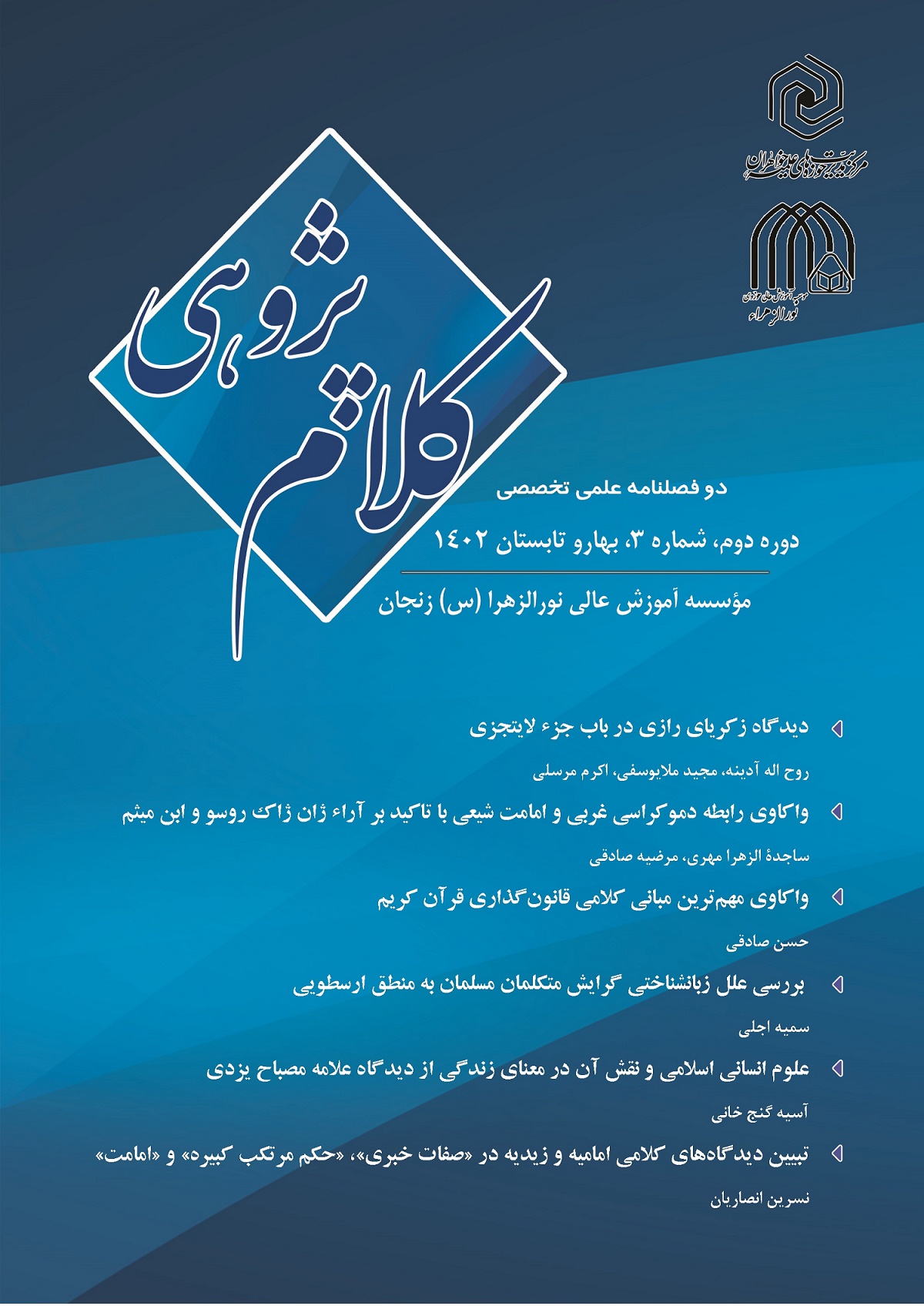نوع مقاله : مقاله پژوهشی
نویسندگان
1 دانشجوی دکتری دانشکده الهیات و ادیان دانشگاه شهیدبهشتی
2 دانشیار گروه معارف اسلامی دانشکده الهیات و ادیان دانشگاه شهید بهشتی
چکیده
اعتقاد به هریک از انحای حسن و قبح میتواند رابطهی عمل، ملکات و معرفت را به شکل متفاوتی تبیین و تحلیل کند. پژوهش حاضر درصدد پاسخ به این مسأله است که نگاه ملاصدرا به حسن و قبح چه تأثیری بر تبیین وی از رابطهی عمل، ملکات و معرفت دارد؟ هدف تحقیق تبیین و تحلیل دیدگاه صدرا دربارهی مقولهی حسن و قبح است که با روش استنتاجی و رویکرد توصیفی- تحلیلی دنبال میگردد. صدرا قایل به تبعیت احکام از مصالح و مفاسد نفس الأمری است. وی صریحا افعال را متّصف به حسن یا قبح کرده و آنها را حَسن و قبیح میداند. از این رو حسن و قبح افعال را به لحاظ وجودشناختی، ذاتی میداند. صدرا حَسن را امری میداند که عقل به آن دعوت نموده و قبیح را امری میداند که عقل از آن منع کند. از این رو صدرا حسن و قبح افعال را به لحاظ معرفتشناختی، عقلی میداند. رابطهی صدرایی عمل، ملکات و معرفت در قوس صعود سلوکی با اعتقاد به حسن و قبح ذاتی در جنبهی وجودشناسی و با اعتقاد به حسن و قبح عقلی در جنبهی معرفتشناسی قابل تبیین است. اعمال که منجر به ملکات و سپس معرفت میشوند، باید دارای حسن و قبح ذاتی باشند. این رابطه با حسن و قبح فاعلی در قوس صعود سلوکی تبیین پذیر است. در قوس نزول سلوکی اعمالی که از نفس انسان صادر میشود، نتیجهی حسن و قبح فاعلی وی است.
کلیدواژهها
عنوان مقاله [English]
Sadra's explanation of "goodness and ugliness" based on the relationship between action, property and knowledge
نویسندگان [English]
- seyyede zeynab Hosseini 1
- Ebrahim Noei 2
1 Doctoral student of Faculty of Theology and Religions, Shahid Beheshti University
2 Associate Professor, Department of Islamic Studies, Faculty of Theology and Religions, Shahid Beheshti University
چکیده [English]
Belief in each aspect of goodness and ugliness can explain and analyze the relationship between action, property and knowledge in a different way. The present study tries to answer this question, what effect does Mulla Sadra's view of goodness and ugliness have on his explanation of the relationship between action, property and knowledge? The purpose of the research is to explain and analyze Sadra's point of view about the category of beauty and ugliness, which is followed by inferential method and descriptive-analytical approach. Sadra is willing to obey the rules of the interests and corruptions of the self-interest. He clearly classified the verbs as good or bad and considers them good and bad. Therefore, he considers the goodness and badness of actions to be intrinsic from an ontological point of view. Sadra considers good as something that reason calls for and ugly as something that reason forbids. Therefore, Sadra considers the goodness and badness of verbs to be rational from an epistemological point of view. Sadra's relationship between action, possessions and knowledge in the arc of the Seleucid ascension can be explained by the belief in inherent goodness and ugliness in the ontological aspect and by the belief in intellectual goodness and ugliness in the epistemological aspect. Actions that lead to possessions and then knowledge, must have inherent goodness and ugliness. This relationship can be explained by the positive and negative aspects of the Seleucid ascending arc. In the arc of Selucid descent, the actions that are issued from the human soul are the result of the goodness and badness of his actions.
کلیدواژهها [English]
- inherent beauty and ugliness
- intellectual beauty and ugliness
- actual beauty and ugliness
- real beauty and ugliness
- Mulla Sadra

